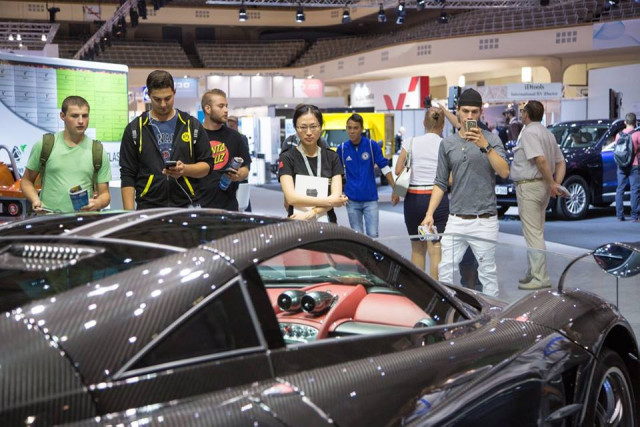Auto parts vendors seek govt help for expansion
Stakeholders demand clear policy to pave way for investment in sector

Vendors of auto parts, who supply different components and merchandise to the original equipment manufacturers (OEMs), have urged the government to help expand this segment of the auto industry.
Just like all other sectors, this sector too is dependent on government policies. Before investing a mammoth capital into the auto parts sector, the stakeholders have demanded a clear policy with details of incentives and future returns.
According to the industry stakeholders, there is no long-term policy to protect future investment by around 400 auto vendors, who are currently generating around Rs120 billion per year for three OEMs in Pakistan.
“Auto parts manufacturers are taking a huge risk by pouring investment into the rapidly growing sector,” remarked Ravi Auto Sundar Chief Operating Officer Majid Nawaz while talking to The Express Tribune.
“Unfortunately, the government tends to favour those who import components and assemble vehicles in Pakistan.”
There are many issues that need to be addressed to give a push to Pakistan’s auto vendors and to resolve them consistent long-term policies are required.
“If we plan to make new investment in hi-tech component production in our factory, we should know what the policy offers to the engineering firms,” he underlined. “It is a big risk to invest in infrastructure for new components without a clear policy.”
Nawaz highlighted that his firm had plans to expand its engineering base over the next 10 years but without a clear roadmap, it was impossible to press ahead with the scheme.
He pointed out that the auto parts vendors were unhappy while watching the government favoured the new entrants. He was of the view that the authorities should tell the new vehicle manufacturing firms to collaborate with the domestic industry in order to create a win-win situation for both sides.
Nawaz noted that the vendors had reservations about a few Statutory Regulatory Orders (SROs).
At present, the existing Japanese car manufacturers have reached nearly 70% localisation level in the four-wheeler segment following successful transfer of technology and utilisation of trained manpower.
Despite all the advancements, there is still a need for deeper linkages between the industry and academia to streamline things for the trained human resources.
“Auto sector is also called the mother of all engineering since it involves nearly all aspects of this field,” Nawaz said. “However, there is a need to link our engineering institutes and technical training institutes with the industry.”
The curriculum of engineering institutes should be changed and more than that, a strong linkage between the industry and academia will help achieve goals of Pakistan’s auto sector.
The industry stakeholders stressed that the auto vending industry, which was developed over decades, should be utilised by the new entrants before the expiry of incentives under the Auto Industry Development Policy 2016-21.
Mecas Engineering Senior General Manager Muhammad Zia Alam said that it would take around two years for any vendor to produce the first component for a car manufacturer.
“Since Pakistani vendors are already meeting demand of a few car manufacturers, the government should bind the new ones to opt for localisation as well,” he said. “Our parts are largely gaining acceptance in the European and US markets.”
Currently, the local vendors were exporting up to 25% of their parts to Germany, the US and allied markets and their share was increasing steadily, Alam said.
“We are following ‘Made in Pakistan’ policy and making products with widespread acceptability among the existing car manufacturers. If this practice is replicated by the new entrants, it will benefit Pakistan immensely,” he added.
Published in The Express Tribune, March 24th, 2021.
Like Business on Facebook, follow @TribuneBiz on Twitter to stay informed and join in the conversation.



















COMMENTS
Comments are moderated and generally will be posted if they are on-topic and not abusive.
For more information, please see our Comments FAQ